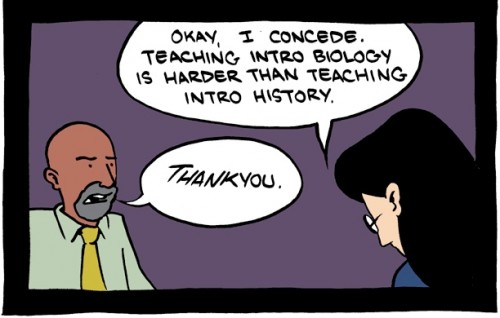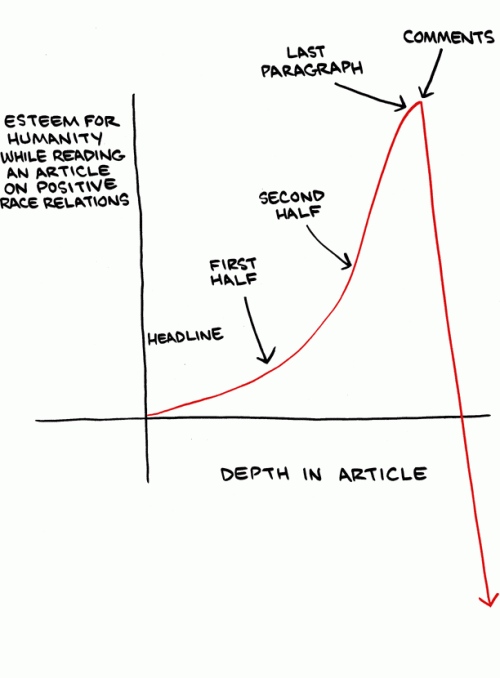Oh, great, another depressing article about the state of American academia.
My friend is an adjunct. She has a PhD in anthropology and teaches at a university, where she is paid $2100 per course. While she is a professor, she is not a Professor. She is, like 67 per cent of American university faculty, a part-time employee on a contract that may or may not be renewed each semester. She receives no benefits or health care.
According to the Adjunct Project, a crowdsourced website revealing adjunct wages – data which universities have long kept under wraps – her salary is about average. If she taught five classes a year, a typical full-time faculty course load, she would make $10,500, well below the poverty line. Some adjuncts make more. I have one friend who was offered $5000 per course, but he turned it down and requested less so that his children would still qualify for food stamps.
Why is my friend, a smart woman with no money, spending nearly $2000 to attend a conference she cannot afford? She is looking for a way out. In America, academic hiring is rigid and seasonal. Each discipline has a conference, usually held in the fall, where interviews take place. These interviews can be announced days or even hours in advance, so most people book beforehand, often to receive no interviews at all.
By the way, five course per year — the standard 3/2 load — is what I teach. It represents about 20 contact hours per week, and doesn’t include all the preparation time. Or in the case of adjuncts, the commute time: I knew of adjuncts in the Philadelphia area who taught 5 or 6 or more courses, each one at a different university.
And as the article points out, there are additional costs to being in the professoriat. I’m at a small university, and we get several hundred dollars per year for travel (although we’d be in trouble if every faculty member tapped into that fund), but adjuncts typically get nothing, and are entirely on their own. A lot of journals also have page costs if you want to publish…that has to come out of your pocket if you’re an adjunct.
This is a telling quote from the article:
The adjunct problem is emblematic of broader trends in American employment: the end of higher education as a means to prosperity, and the severing of opportunity to all but the most privileged.




